Dear Readers, Pine nuts have to be harvested by hand and are therefore quite expensive. But they have a lot to offer. They not only refine many dishes with their delicate, nutty taste but are also real powerhouses for your health. We introduce you to the effects and disadvantages of the seeds and give tips on the consumption of Pine nuts’ health benefits.
Where do pine nuts come from
Pine nuts are primarily harvested from wild pine trees, there are hardly any real crops. First of all: have patience. Because pine trees only bear cones after about 15 to 20 years, in which the pine nuts ripen. A cone takes three years to mature.
Harvesting pine nuts is laborious and time-consuming: the cones have to be harvested by hand, often in rather a rough terrain. The pickers in Turkey, Italy, or Spain climb into the trees, which are up to 30 meters high, and knock down the cones one by one with sticks.
And then it’s time to wait again: the cones won’t be completely dry until next summer. They open up and release the seeds. Finally, they are soaked and peeled by the machine. It’s not a wonder pine nuts are not cheap.
Incidentally, a cheaper alternative comes from the Korean pine from China, Korea, or Afghanistan. Their seeds taste similar but are even fattier and not quite as aromatic. You can recognize real pine nuts by their slim, elongated shape. The seeds of the Korean pine are more triangular in shape and have small black tips.
Pine nuts are so healthy
Pine nuts are not only delicious but also have a lot of important ingredients. We will inform you about the numerous effects of the nuts – because pine nuts can not only score points in terms of taste, but also in terms of health.
Improve cholesterol levels
If your blood fat levels are too high, pine nuts are ideal for you. They contain large amounts of omega-3 fatty acids, and these can improve cholesterol levels. This protects your blood vessels and heart.
With the high content of omega-3 fatty acids, pine nuts are a real exception. The valuable oils are usually found primarily in fish. This makes the delicious kernels a valuable source of good fats, especially for vegetarians or vegans.
Promote blood formation
Iron is important for blood formation. If you have too little iron in your body, you are permanently exhausted, pale and tired. This is particularly difficult for vegetarians and vegans: However, it is not that easy to get enough iron from purely plant-based foods.
Pine nuts make a valuable contribution here: 100 g of fine nuts contain 5 to 6 mg of iron. That’s already half the daily requirement for a man and a third of the daily requirement for a woman. Pregnant women and women with heavy menstrual periods also often have an iron deficiency and can particularly benefit from pine nuts.
To strengthen muscles and nerves
The mineral magnesium is important for the function of nerves and muscles in the body. Magnesium deficiency is often noticed through calf cramps, muscle twitching, or exhaustion. With 235 mg per 100 g, pine nuts contain a particularly large amount of magnesium. This covers two-thirds of your daily requirement.
For cell protection
Vitamin E is considered an anti-aging miracle because it protects cells from free radicals. These are considered to be jointly responsible for various diseases, including cancer. With almost 14 mg per 100 g, pine nuts contain a lot of vitamin E. This keeps the cells young and protects them in times of stress.
But that’s not all: With selenium, pine nuts contain another very effective antioxidant and thus protect your cells twice over. In fact, they are the most selenium-rich natural food ever.
Pine nuts are high in protein
Pine nuts do not have quite as much protein as other nuts and seeds, but at around 14 g per 100 g the protein content is still quite high. The proteins in pine nuts are very similar to those in the human body and are therefore absorbed particularly quickly and well. This makes pine nuts a valuable source of vegetable protein, especially for vegetarians and vegans.
Strengthen bones and teeth
Calcium is the first thing most people think of when they think of strong bones. In fact, pine nuts bring a considerable amount of calcium, which supports the bone structure. But bones and teeth also need other nutrients, such as phosphorus. With 100 g of pine nuts, you already cover a large part of your daily phosphorus requirement. And that strengthens your teeth and bones. It also helps the body to form healthy cells.
To support the metabolism
Pine nuts contain various vitamins that are necessary for a well-functioning metabolism. We are talking about niacin, vitamin A, vitamin B1, and vitamin B2, among others. These nutrients support your metabolism and thus the whole body.
To lower blood pressure
Eating nuts and seeds like flaxseed and chia seeds, including pine nuts, can help lower blood pressure to healthy levels. This also reduces the risk of cardiovascular disease. At the same time, the risk of gallstones, diabetes, and other “lifestyle diseases” decreases.
Inhibit the growth of breast cancer cells
Breast cancer patients may particularly benefit from pine nuts. A study published in 2010 showed that the fatty acid from pine nuts can slow down the growth of breast cancer cells. However, if you are a cancer patient and want to eat large amounts of pine nuts, talk to your doctor first. Under no circumstances should you discontinue other medications on your own.
For the eyes
The vitamin A contained in pine nuts is important for eyesight. It is also involved in building the skin and cartilage tissue in the body.
For athletes
There is evidence that pine nuts can speed up recovery in athletes. The reason for this is probably the antioxidants, which protect the body from stress phases and support cell formation. If you like sports or are exposed to physical exertion at work, you should enrich your diet with pine nuts.
Disadvantages of pine nuts
As healthy as pine nuts are, they still have a few downsides. Not only is the cultivation of the small seeds difficult, but other factors can also be detrimental to the seeds.
Pine nuts are expensive
Pine nuts are arguably the most expensive of nuts and seeds (along with macadamia nuts). Organic pine nuts cost significantly more. The reason for the high price is the laborious harvesting and processing. So pine nuts are not for every day. But every now and then you should treat yourself to this healthy luxury.
Pine nuts are high in calories
Pine nuts taste so delicious and light that you can hardly get enough of them. But in large quantities, the seeds quickly make themselves felt on the scales: 100 grams of them have over 600 calories.
That’s more than in chocolate, cream cake or pizza. However, pine nuts are of course much healthier. Nevertheless: If you tend to be overweight, you should rather enjoy pine nuts in small quantities. However, the seeds are still suitable for healthy weight loss. If you want to lose weight quickly, you should better do without the seeds.
Shelf life of pine nuts
As long as the pine nuts are still in their shells, they have a very long shelf life. For home use, however, you usually buy shelled kernels, and they are a little sensitive. If there is too much light and heat, they can quickly become rancid. Therefore, keep them in tightly closed containers in a cool, dry place. Discontinue use if they taste musty or bitter.
Disclaimer: If any health issues consult your doctor before using any remedy.
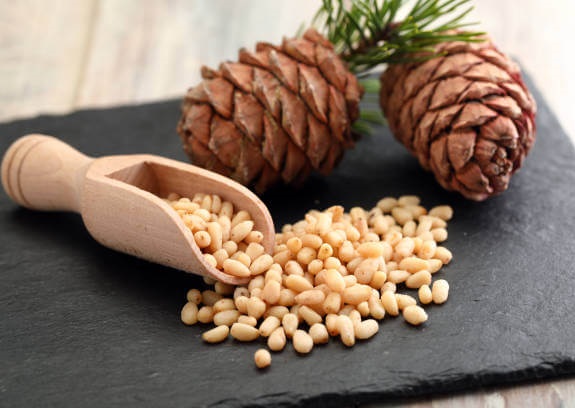
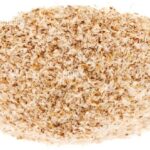

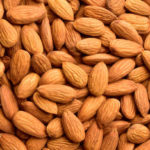
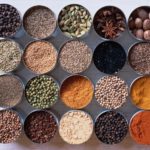
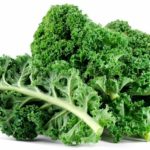
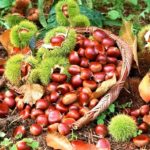
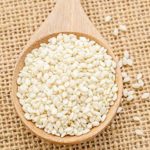





[…] and healthy but unfortunately they are also expensive. They are among the most expensive “nuts” in the world, but the price has its reasons. A pistachio tree needs seven years to grow […]